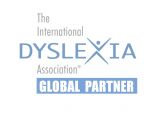Dyscalculia
Specific learning disorder with impairment in mathematics (dyscalculia)
A specific learning disorder with impairment in mathematics (dyscalculia) is an innate difficulty in learning and comprehending mathematics. Children who have a specific learning disorder with impairment in mathematics (dyscalculia) have trouble understanding numbers, learning how to manipulate numbers, learning mathematical facts, and a number of other related difficulties.
Dyscalculia can be defined as:
… a condition that affects the ability to acquire arithmetical skills. Learners with dyscalculia may have difficulty understanding simple number concepts, lack an intuitive grasp of numbers, and have problems learning number facts and procedures. Even if they produce a correct answer or use a correct method, they do so mechanically and without confidence.
The severity of mathematical impairment differs depending on the individual. Although it can be argued that many of the defining features of a specific learning disorder with impairment in mathematics (dyscalculia) can also be seen in children who do poorly in mathematics, it is the degree of these difficulties and the resistance to remedial intervention that set children with dyscalculia apart from others with learning difficulties.
When looking at identifying a Specific Learning Disorder with impairment in mathematics (dyscalculia), deficits in one or both of the following key academic areas are usually present:
- Difficulties mastering number sense, number facts or calculation (e.g., has poor understanding of numbers, their magnitude, and relationships; counts on fingers to add single-digit numbers instead of recalling the math fact as peers do; gets lost in the midst of arithmetic computation and may switch procedures).
- Difficulties with mathematical reasoning (e.g., has severe difficulty applying mathematical concepts, facts, or procedures to solve quantitative problems).
What you might see in the classroom.
| Lower Primary School | Upper Primary School | Secondary School |
|
|
|
Information reproduced from AUSPELD Understanding Learning Difficulties: A practical guide (Revised edition).






